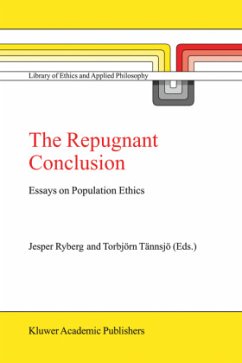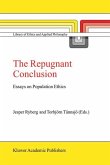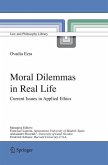Most people (including moral philosophers), when faced with the fact that some of their cherished moral views lead up to the Repugnant Conclusion, feel that they have to revise their moral outlook. However, it is a moot question as to how this should be done. It is not an easy thing to say how one should avoid the Repugnant Conclusion, without having to face even more serious implications from one's basic moral outlook. Several such attempts are presented in this volume. This is the first volume devoted entirely to the cardinal problem of modern population ethics, known as 'The Repugnant Conclusion'.
This book is a must for (moral) philosophers with an interest in population ethics.
Hinweis: Dieser Artikel kann nur an eine deutsche Lieferadresse ausgeliefert werden.
This book is a must for (moral) philosophers with an interest in population ethics.
Hinweis: Dieser Artikel kann nur an eine deutsche Lieferadresse ausgeliefert werden.
From a pre-publication review:
"The strongest quality of this manuscript is that a very important problem in theoretical ethics gets a thorough treatment from different angles and by highly qualified authors. [...] it is very readable and suggestive. The introduction ties the contributions together in an instructive way and the various contributions are arranged in a logical way. Furthermore, the contributions all seem to take part in the same discussion and seem to be aware of each other. This gives freshness to the book. [...] the contributions are imaginative and pedagogical."
"The strongest quality of this manuscript is that a very important problem in theoretical ethics gets a thorough treatment from different angles and by highly qualified authors. [...] it is very readable and suggestive. The introduction ties the contributions together in an instructive way and the various contributions are arranged in a logical way. Furthermore, the contributions all seem to take part in the same discussion and seem to be aware of each other. This gives freshness to the book. [...] the contributions are imaginative and pedagogical."









